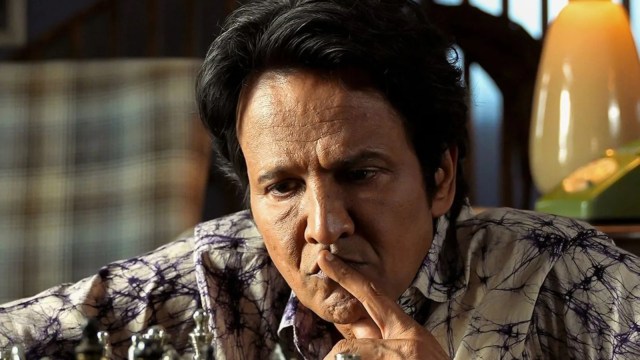📣 For more lifestyle news, click here to join our WhatsApp Channel and also follow us on Instagram
Kay Kay Menon opens up about malaria diagnosis: ‘My voice is still not in order’
Malaria symptoms such as fever, chills, cough, nausea, and vomiting may lead to hoarseness of voice, said Dr Deepti Sinha, lead consultant, Dept of ENT, CK Birla Hospital (R), Delhi
 Kay Kay Menon shares that he is recovering from malaria (Source: Kay Kay Menon/Instagram)
Kay Kay Menon shares that he is recovering from malaria (Source: Kay Kay Menon/Instagram)Kay Kay Menon recently revealed that he was hospitalised after being diagnosed with malaria. “I was hospitalised with malaria on September 29. Things got worse in the next two days, and had to be transferred under emergency into ICU for ten days. I was discharged from the hospital three days back,” Menon told Zoom over a text message.
The Railway Men actor added that while he is recovering at the moment, the doctors have advised him to a minimum of two weeks of complete bed rest and careful nutrition since he has “lost too much weight.” “I am unable to speak much because my voice is still not in order. Hence communicating through text. I am assuming that by November 10 or so, I shall be fit enough to resume my professional work,” he wrote.
IndianExpress.com tried contacting the actor over the phone and messages but did not receive a reply.
Taking a cue, let’s understand the causes of malaria and how it can affect one’s voice.
Malaria, a parasitic infection transmitted by mosquitoes, can significantly impact voice and speech, particularly in severe cases like cerebral malaria, said Dr Deepti Sinha, lead consultant, Dept of ENT, CK Birla Hospital (R), Delhi.
According to Dr Sinha, symptoms such as fever, chills, cough, nausea, and vomiting may lead to hoarseness of voice.
“In the most serious form, cerebral malaria can cause central nervous system injuries, resulting in vocal cord paralysis and speech impairments, affecting vocabulary, phonology, and both receptive and expressive language abilities,” said Dr Sinha.
How long does recovery take?
Recovery from voice-related issues generally takes weeks to months, depending on the severity of the infection and neurological damage, said Dr Sinha.
 Here’s how malaria happened (Source: Getty Images/Thinkstock)
Here’s how malaria happened (Source: Getty Images/Thinkstock)
“To expedite vocal recovery, it is essential to adhere to the prescribed antimalarial treatment, stay well-hydrated, and rest the voice. Inhaling steam can help soothe irritated vocal cords,” said Dr Sinha.
“Some patients may require speech therapy to address ongoing deficits and regain effective communication skills, emphasising the importance of comprehensive care during the recovery process,” said Dr Sinha.
DISCLAIMER: This article is based on information from the public domain and/or the experts we spoke to. Always consult your health practitioner before starting any routine.
📣 For more lifestyle news, click here to join our WhatsApp Channel and also follow us on Instagram
- 01
- 02
- 03
- 04
- 05



























